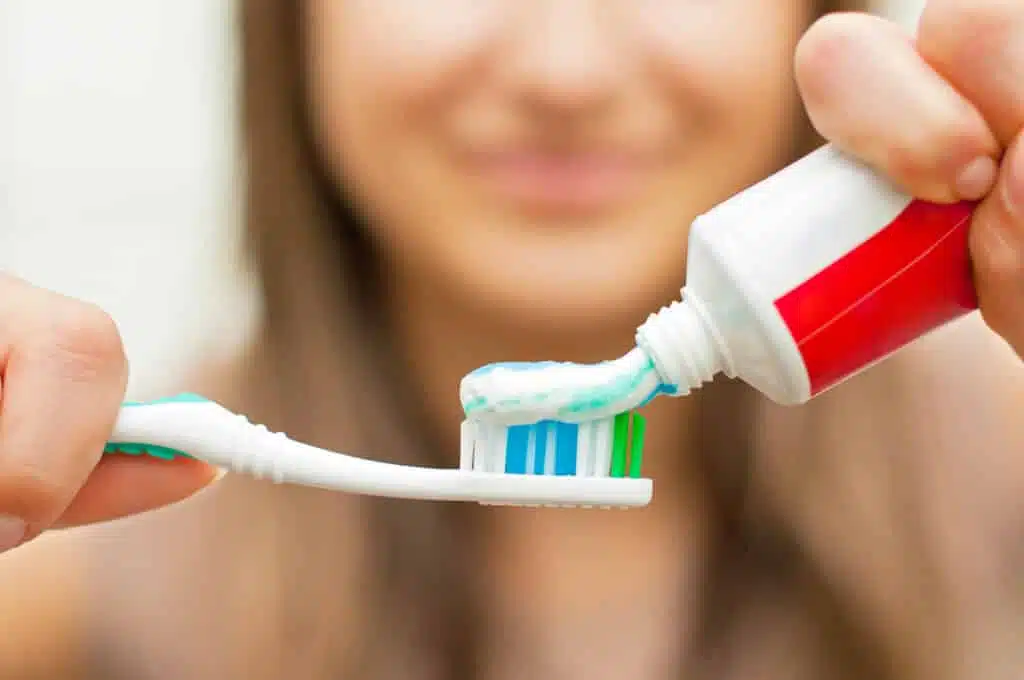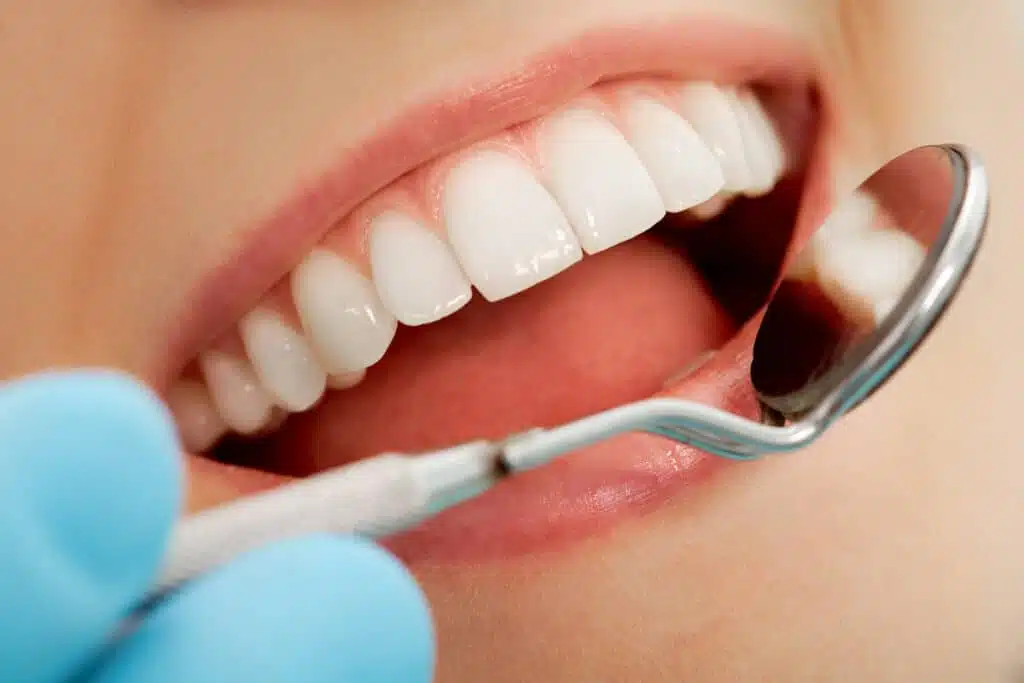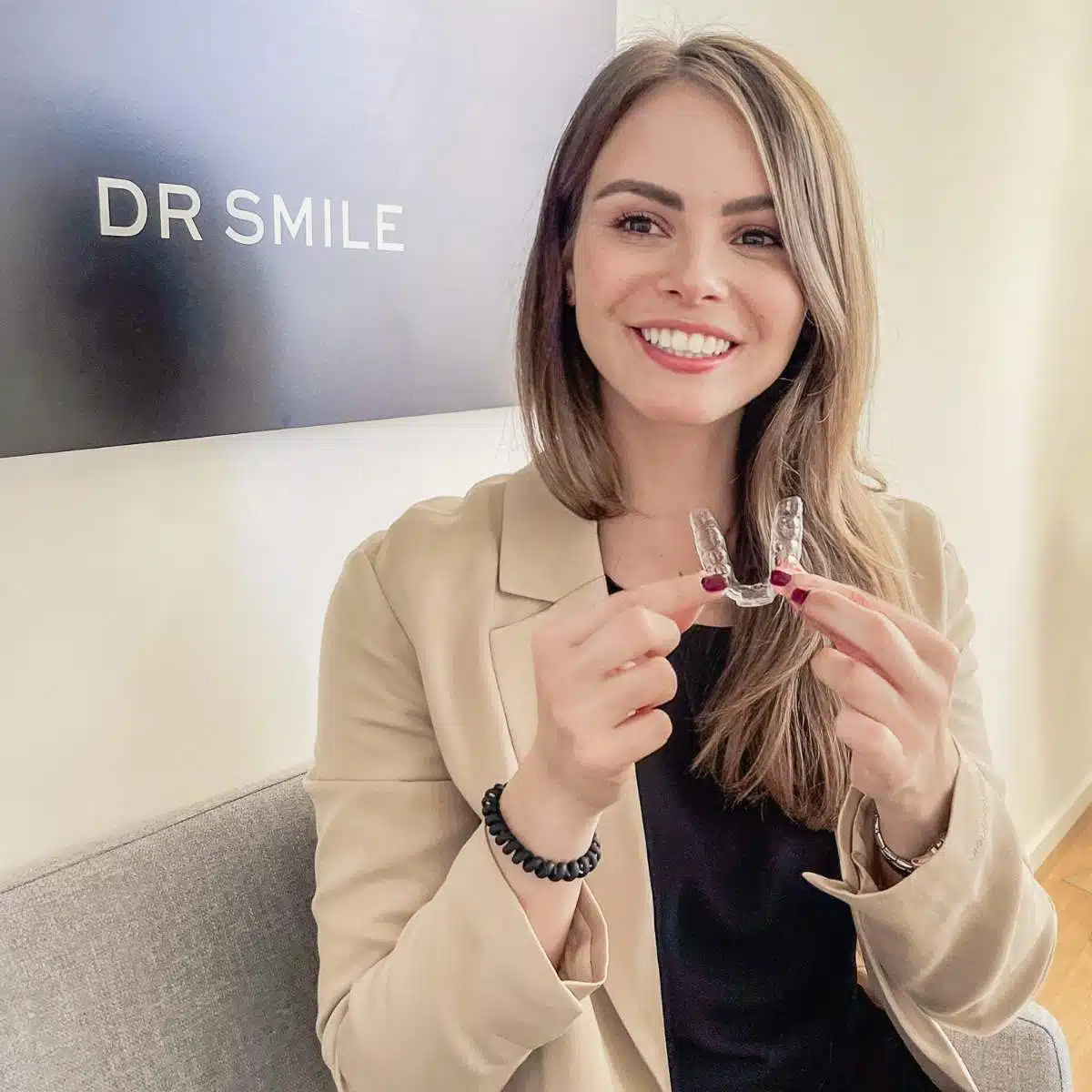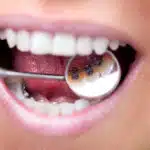Here we show you the most common mistakes when brushing your teeth and tell you how you can avoid them and clean your teeth optimally.
Brushing your teeth properly is crucial for maintaining dental health and preventing tooth decay and gum disease.
But even with daily dental care, mistakes often creep in that can impair the effectiveness of cleaning.
In this article, you will find out which common mistakes are made when brushing your teeth and how you can avoid them to protect your teeth and gums in the best possible way.
| Get 150 € discount on your dental correction! |

Book a consultation appointment now at a nearby DrSmile partner practice and find out if teeth straightening with aligners is right for you.
The appointment is completely non-binding and does not involve any costs.
With the code “THATSMILE150” you will receive 150 € discount on the treatment.
1. cleaning too quickly
Mistake: Many people do not brush their teeth long enough. A quick cleaning of 30 seconds is not enough to remove all plaque and bacteria.
Solution: Brush your teeth for at least two minutes, twice a day. Use a timer or an electric toothbrush with an integrated timer to make sure you keep to the recommended duration.
2. scrubbing too vigorously
Mistake: Scrubbing too hard can damage the gums and tooth enamel, leading to receding gums and sensitive teeth.
Solution: Apply only light pressure when brushing your teeth. Use a toothbrush with soft bristles and make gentle, circular movements to effectively remove plaque without damaging the gums.

3. wrong technique
Mistake: An incorrect cleaning technique, such as horizontal scrubbing or skipping certain areas, leads to inadequate cleaning.
Solution: Position the toothbrush at a 45-degree angle to the gum line and use small, circular movements. Systematically brush all surfaces of the teeth: outer, inner and chewing surfaces.
4. neglect of the interdental spaces
Mistake: Interdental spaces are often overlooked, even though plaque and food debris can easily accumulate there.
Solution: Use dental floss or interdental brushes daily to thoroughly clean the spaces between your teeth and prevent gingivitis.
5. use old or worn toothbrushes
Mistake: A toothbrush with worn bristles cleans the teeth less effectively and can irritate the gums.
Solution: Experts recommend changing your toothbrush or the brush head of an electric toothbrush every three months or sooner if the bristles are worn out.
6. too much or too little toothpaste
Mistake: Using too much toothpaste leads to excessive foam, which makes brushing more difficult, while using too little toothpaste reduces the cleaning effect.
Solution: A pea-sized amount of toothpaste is enough to thoroughly clean the teeth and provide sufficient fluoride.
7. rinse mouth with too much water
Mistake: If you rinse your teeth with plenty of water after brushing, the fluoride contained in the toothpaste is removed directly from your teeth.
Solution: If you don’t rinse the toothpaste with water after brushing, but simply spit it out, you have a clear advantage. This allows the trace element to remain on the teeth for longer and work even more effectively.

8. neglect of the tongue
Mistake: Many people do not clean their tongue, even though bacteria can accumulate there and cause bad breath.
Solution: Clean your tongue daily with a tongue cleaner or the back of your toothbrush to remove bacteria and freshen your breath.
9. brushing your teeth immediately after eating
Mistake: After consuming acidic foods or drinks, teeth can become temporarily soft. Brushing your teeth immediately can damage the enamel.
Solution: Wait at least 30 minutes after eating before brushing your teeth to protect the enamel. In the meantime, drink water to neutralize the acids.
10. irregular dental care
Mistake: Irregular brushing, especially skipping brushing in the evening, can lead to plaque and bacteria build-up.
Solution: Establish a fixed routine and brush your teeth at least twice a day, in the morning after getting up and in the evening before going to bed.
Conclusion on the topic of mistakes when brushing teeth
Brushing your teeth properly requires more than just regular brushing.
By avoiding common mistakes when brushing your teeth and using the right techniques, you can significantly improve your dental health and prevent dental problems.
Make sure you have a good dental care routine, use the right tools and visit your dentist regularly to keep your teeth and gums healthy.
| Get 150 € discount on your dental correction! |

Book a consultation appointment now at a nearby DrSmile partner practice and find out if teeth straightening with aligners is right for you.
The appointment is completely non-binding and does not involve any costs.
With the code “THATSMILE150” you will receive 150 € discount on the treatment.
FAQs on the topic of brushing mistakes
Here we answer a few of the most frequently asked questions on the subject of “brushing mistakes”.
How long should I brush my teeth to ensure thorough cleaning?
You should brush your teeth for at least two minutes, twice a day.
A timer or an electric toothbrush with an integrated timer can help to ensure that you keep to the recommended duration.
Mistakes when brushing your teeth: Can I brush my teeth too hard?
Yes, scrubbing too hard can damage the enamel and gums.
Use a toothbrush with soft bristles and only apply light pressure to avoid damaging the gums.
What is the right technique for brushing your teeth?
Position the toothbrush at a 45-degree angle to the gum line and use small, circular movements.
Systematically cleans all surfaces of the teeth: outer, inner and chewing surfaces.
Do I have to use dental floss if I want to clean my teeth thoroughly?
Yes, floss removes plaque and food debris from the spaces between teeth that the toothbrush cannot reach.
Use dental floss or interdental brushes daily for a complete clean.
Oral irrigators are recommended for very narrow interdental spaces.
How often should I change my toothbrush?
You should change your toothbrush or the brush head of an electric toothbrush every three months or sooner if the bristles are worn out.
How much toothpaste should I use?
A pea-sized amount of toothpaste is enough to thoroughly clean the teeth and provide sufficient fluoride.
Mistakes when brushing your teeth: Is it important to clean your tongue?
Yes, cleaning your tongue is important as bacteria can build up on it and cause bad breath.
Use a tongue cleaner or the back of your toothbrush to gently clean the tongue.
Should I brush my teeth immediately after eating?
Wait at least 30 minutes after eating before brushing your teeth, especially after consuming acidic foods or drinks, to protect the enamel.
What can I do if I often forget to brush my teeth in the evening?
Establish a fixed routine and combine brushing your teeth with another habit, such as watching TV in the evening or reading a book.
A fixed schedule helps you not to forget to brush your teeth in the evening.



Leave a Reply